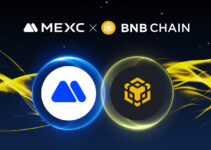Decentralized Autonomous Organizations (DAOs) herald a transformative approach to governance, leveraging blockchain technology and smart contracts to enable decentralized decision-making and collective ownership. By moving away from traditional hierarchical structures, DAOs empower participants with significant control over organizational decisions. Despite their revolutionary potential, DAOs face a myriad of challenges that complicate their governance frameworks. This article delves into the intricacies and obstacles that DAOs encounter.

What is DAO Governance?
DAO governance is the cornerstone of these decentralized entities, defining the rules and mechanisms that drive their decision-making processes. In the fast-paced world of cryptocurrency, where trust and transparency are paramount, effective governance in DAOs is not just desirable but essential. Initially conceptualized by Satoshi Nakamoto in the Bitcoin white paper, DAOs signify a fundamental shift from centralized systems, granting users substantial decision-making authority.
Unlike traditional organizations that rely on central authority, DAOs operate autonomously, governed by predefined rules encoded in smart contracts on a blockchain. These rules dictate how funds are managed, decisions are made, and how the organization functions overall. Blockchain governance in DAOs allows users to participate in managing a collective entity without needing centralized control. Typically, users have voting rights proportional to their stake or contribution, fostering a more democratic and transparent decision-making process.
The Importance of Governance in DAOs
Governance within DAOs is crucial, serving as the foundation for transparency, accountability, and efficient decision-making. Effective governance cultivates a sense of ownership among participants and enhances the legitimacy of decisions made.
- Transparency and Accountability: DAOs usually operate transparently on open-source blockchains, allowing anyone to audit their code and financial transactions. This openness fosters trust and accountability, providing visibility into resource allocation and utilization, and mitigating the risk of fraud or mismanagement.
- Risk Management and Security: Governance frameworks in DAOs are pivotal in managing risks and ensuring the security of funds and assets. As decentralized finance (DeFi) becomes more prevalent and smart contract interactions grow more complex, robust governance mechanisms are essential. Clear, enforceable rules can help safeguard against malicious activities and vulnerabilities.
- Community Engagement and Innovation: Governance structures that prioritize community engagement enable DAOs to leverage the collective wisdom and expertise of their participants. This inclusivity fosters innovation and adaptability, allowing DAOs to evolve in response to changing circumstances and new opportunities.
Challenges Facing DAO Governance
Despite their promise, DAOs confront several significant challenges:
- Coordination and Consensus: Achieving consensus among a large, diverse group of participants can be challenging. The decentralized nature of DAOs means that coordination requires sophisticated mechanisms to avoid decision-making gridlock and to ensure that the interests of the majority are represented without marginalizing minority voices.
- Security Vulnerabilities: Smart contracts, while powerful, are not infallible. Bugs or vulnerabilities in the code can be exploited, leading to significant financial losses. Ensuring the security of smart contracts through rigorous testing and auditing is paramount, but even then, unforeseen issues can arise.
- Regulatory Uncertainty: DAOs operate in a legal grey area in many jurisdictions. The lack of clear regulatory frameworks can lead to uncertainties and potential legal challenges. DAOs must navigate these complexities, balancing the need for compliance with their decentralized ethos.
- Scalability: As DAOs grow, the scalability of their governance mechanisms becomes a critical issue. Ensuring that the governance process remains efficient and effective while accommodating an increasing number of participants is a significant challenge.
- Token-Based Voting: While token-based voting is a common governance model in DAOs, it can lead to the centralization of power among large token holders, undermining the democratic principles of the organization. Finding ways to balance influence and ensure equitable participation is an ongoing challenge.
- User Engagement: Sustaining active and meaningful participation from members is crucial for the success of a DAO. However, ensuring consistent engagement can be difficult, particularly in large organizations where individual contributions may feel insignificant.
Conclusion
Decentralized Autonomous Organizations (DAOs) represent a groundbreaking approach to governance, offering a model that emphasizes transparency, accountability, and collective ownership. However, the complexities and challenges they face—ranging from coordination and security to regulatory and scalability issues—highlight the need for robust, adaptable governance frameworks. As DAOs continue to evolve, addressing these challenges will be essential to realizing their full potential and fostering a new era of decentralized, community-driven governance.
Personal Note From MEXC Team
Check out our MEXC trading page and find out what we have to offer! There are also a ton of interesting articles to get you up to speed with the crypto world. Lastly, join our MEXC Creators project and share your opinion about everything crypto! Happy trading! Learn about interoperability now!
Join MEXC and Get up to $10,000 Bonus!
Sign Up


